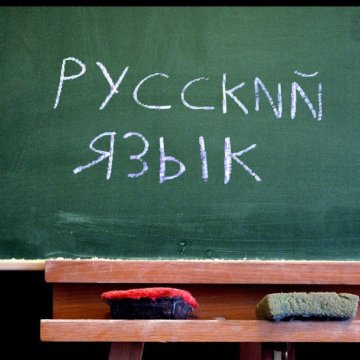- About
- Topics
- Picks
- Audio
- Story
- In-Depth
- Opinion
- News
- Donate
- Signup for our newsletterOur Editors' Best Picks.Send
Read, Debate: Engage.
| topic: | Human Rights |
|---|---|
| located: | Russia |
| editor: | Igor Serebryany |
The Russian language has been falling victim to the foreign "Russophobic troglodytes" attempting to undermine Russia's global influence, president Vladimir Putin said on Tuesday, November 5.
They deliberately attempted to dwarf the Russian language presence outside of its "home areal" because Russia has still been causing fear abroad, Putin said in a meeting of the Presidential Council on the Russian Language, in the Kremlin.
Putin admitted that the Russian language can be interesting for non-Russian speakers only if Russia itself becomes more attractive as an economic partner. To protect the Russian language while Russia's economic recovery has still been beyond the horizon, Putin offered a tool, which best fits the mentality of this country's establishment: to ban something.
This time, Putin proposed to ban Wikipedia as a source of "littering" the Russian language with foreign words and, well, foreign influence. He offered to replace Wikipedia with its Russian competitor, Big Russian Encyclopedia (BRE).
Experts find this idea "mad". First of all, because no centralised resource can compete with the structure of Wikipedia's peer-to-peer structure, the administrator of Wikipedia's Russian edition Ilia Shchurov believes. "However big money is allocated and however large personnel work on creating and maintaining of the BRE, it can't catch up with a crowdsource-based project. Wiki is being created and updated in real-time by millions of users and, most importantantly, for free", he adds.
For example, no person can publish the updates of some sporting event as it happens, the Wiki expert notes. The very idea to create a traditional encyclopedia looks obsolete, the president of the Information Democracy Foundation Ilia Massukh adds. "Take Britannica. Would you find many references for it nowadays? This is because no traditional encyclopedia can compete with the electronic sources in the world where the volume of information doubles every two years", he says.
To save the Russian language from its decline is impossible by employing any administrative measures because language is a living organism, dean of the Philological department in the Moscow Lomonosov State University Marina Remneva says. "Putin's speech was written in the Russian Academy of Science. His speechwriters have even softened the actual state of affairs because the situation has been disastrous", she stresses.
The principal omission Putin's speechwriters made was that they did not have enough courage to say that the main threat to the Russian language comes not from abroad but from "troglodytes" inside the country. "The level of command of the mother tongue precisely reflects the level of education and intellectual development of any society. I see it in our department's applicants. Many of them can't answer even simple questions like 'Where are you from' without making grammatical errors", she laments.
A very similar disaster happened exactly 100 years ago, when the Russian language was replaced by the "Soviet language" in less than a decade, Remneva reminds. "In the 1920s, due to mass extermination of the intellectual elite, the norms of the Russian language changes dramatically. Still, until World War II, some 'golden standards' have survived thanks to writers such as Marina Tsvetayeva, Anna Akhmatova, Mikhail Bulgakov. They were encyclopedias themselves. Today we don't even have a handful of language standard keepers", Remneva says.
